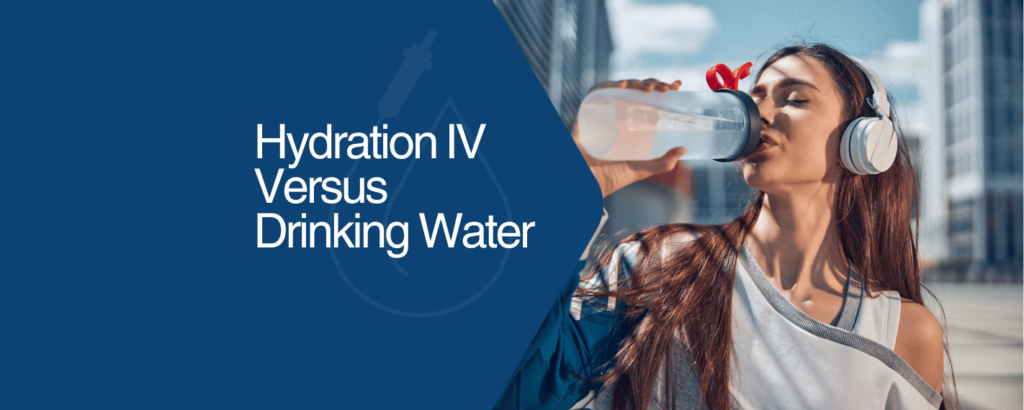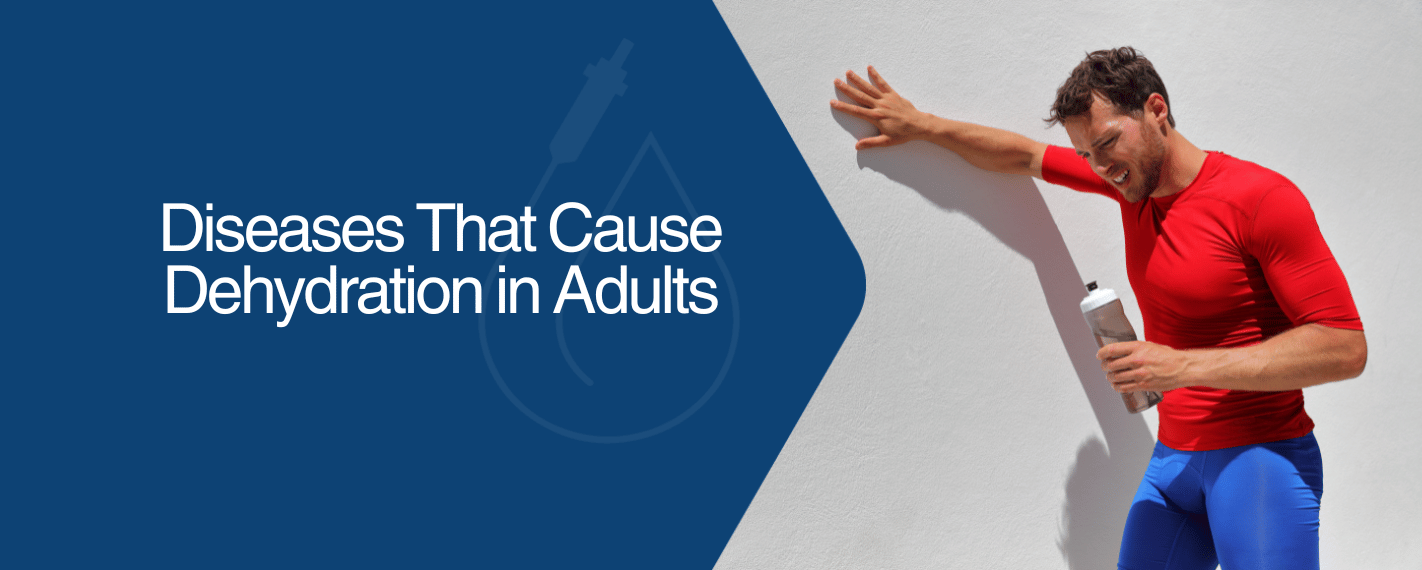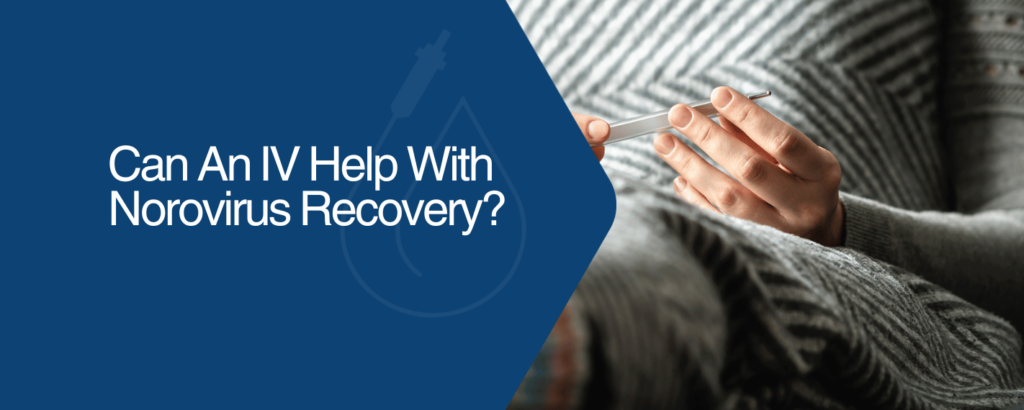Dehydration is one of the most common side effects that comes with being sick. This is mostly because when you’re not feeling well, your body loses most of its fluid due to sweating, vomiting, and diarrhea as it tries to fight off the illness.
In this article, we’re looking at diseases that cause dehydration in adults, what the symptoms of dehydration look like, and how to rehydrate fast while you recover.
Symptoms of Dehydration

Before we dive into the diseases that cause dehydration in adults, do you know what the most common symptoms of dehydration are?
Being able to identify these is the best way to make sure you stay properly hydrated so that you can help your body recover as quickly as possible.
Symptoms of dehydration include:
- Persistent headaches: While headaches can be caused by fatigue, hunger, and stress, dehydration can be the reason you can’t get that pounding feeling out of your head. White blood cells need to be properly hydrated to carry oxygen to the brain, and not drinking enough water slows down that process.
- Dizziness: Like headaches, dizziness is another result of improperly hydrated white blood cells.
- Sugar cravings: You may not be too hungry when you’re sick, but irregular sugar cravings can be a sign that your body is overcompensating for insufficient hydration by increasing its glucose utilization.
- Mood swings: While you may already feel under the weather while recovering from an illness, dehydration may lead to increased cortisol levels—the stress hormone—and can exacerbate feelings of stress and anxiety.
These symptoms are never fun to deal with, but now that you know what to look for, you should also know what causes dehydration when it comes to diseases.
What Causes Dehydration?

Knowing what can cause dehydration is the best way to stay ahead of managing the symptoms if you’ve already been diagnosed with a disease or if you just want to be prepared.
In terms of diseases that cause dehydration in adults, some of the most common ones include:
Celiac Disease
Celiac disease currently affects 1 in 10 people in the United States and is an autoimmune disease that can damage the liver when someone with the disease consumes gluten.
This disease causes dehydration due to frequent diarrhea in children. In adults, the disease leads to dehydration because of major vitamin and mineral deficiencies, specifically, an electrolyte imbalance.
Crohn’s Disease
Crohn’s is a bowel disease that causes inflammation of the digestive tract, which can kickstart symptoms like diarrhea.
Additionally, symptoms of dehydration are prevalent in this disease because even something as essential as water can cause discomfort, stopping individuals from staying properly hydrated.
Addison’s Disease
Addison’s disease is a rare autoimmune disease that affects the adrenal glands. These small triangular glands help the body regulate various vital hormonal functions that maintain overall health.
When an individual is affected by Addison’s disease, their adrenal gland struggles to produce an adequate amount of cortisol and aldosterone, hormones that regulate stress, blood pressure, and the balance of sodium and potassium levels.
Dehydration is one of the main distress signals the body sends when these hormone deficiencies occur.
Norovirus
Norovirus is a common and contagious virus that causes symptoms similar to the stomach flu. It is estimated that 685 million cases of norovirus are reported annually.
Many of the side effects found in individuals dealing with norovirus also coincide with symptoms of dehydration and include:
- Diarrhea
- Vomiting
- Nausea
- Stomach pain
- Fever
- Headaches
- Body aches
Luckily, there are ways to hydrate your body quickly if you or someone you know are dealing with these diseases that cause dehydration in adults.
How to Rehydrate Fast

Fighting off the symptoms of diseases that cause dehydration in adults is hard enough on the body.
By staying properly hydrated, you can help your body recover quicker; here are some tips on how to rehydrate fast:
- Sip water through a straw to drink more with minimal effort.
- Drink electrolyte-rich liquids like coconut water, sports drinks, caffeine-free herbal teas, and nutrient-rich clear broth.
- Eat water-rich foods like fruits and vegetables; more specifically, watermelon, strawberries, grapes, cantaloupe, oranges, and cucumbers.
Additionally, another great way to rehydrate fast is through IV therapy.
Treat Symptoms of Dehydration With IV Therapy
We know that sometimes, you need to rehydrate your body quickly so you can get back to your daily responsibilities.
Our IV therapy treatments deliver instant hydration and essential vitamins and minerals to your bloodstream so that you don’t have to deal with dehydration symptoms longer than you need to!
Schedule your appointment today with Mobile IV Medics.





